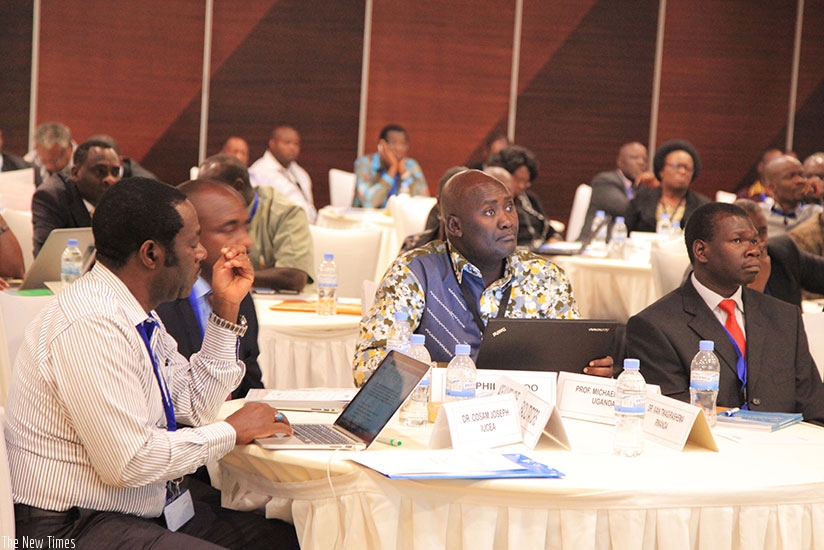African governments have a key role in efforts to enhance the quality of education at the tertiary level but this can only be achieved through stronger public-private partnerships, education experts from around Africa have said. The experts were speaking at a meeting dubbed ‘University-Private Sector and Industry Partnership Forum for Innovation, Research and Development in Africa’ in Kigali on Wednesday.


African governments have a key role in efforts to enhance the quality of education at the tertiary level but this can only be achieved through stronger public-private partnerships, education experts from around Africa have said.
The experts were speaking at a meeting dubbed ‘University-Private Sector and Industry Partnership Forum for Innovation, Research and Development in Africa’ in Kigali on Wednesday.
The forum brought together national and regional higher education agencies, vice chancellors, directors of centres of excellence from around the continent, industry players, among others.
Participants were drawn from eight countries namely Rwanda, Uganda, Kenya, Tanzania, Malawi, Mozambique, Ethiopia and Zambia.
The meeting was organised under the auspices of the Inter-University Council for East Africa (IUCEA).
The experts underlined the role of 24 higher education centers of excellence across Eastern and Southern Africa in raising the quality of education across the region.
The African Centers of Excellence Project targets to enroll over 3,500 graduate students in priority sectors of health, agriculture, industry, education and applied statistics of which over 700 will be PhD students, 1,000 of them women.
It also plans to publish 1,500 journal articles and launch over 300 research collaborations with private sector and other institutions.
The African Centers of Excellence Project coordinator, Eugene Mutimura, said that "partnering with the private sector, industry and government institutions will help boost the skills of university graduates as well as generate revenues through grants and do publications which the centres have been tasked to do.”
"The university and those centres of excellence have responsibilities to train people and boost national development by doing research in agriculture, health, applied science, energy, among fields. Collaboration with the private sector and donors is crucial,” he said.
Rwanda hosts four centres of excellence, including for energy, internet of things, education, and data science.
Each centre of the selected 24 specialised regional centres has to receive funding of up to $6 million to enhance institutional capacity to provide quality post-graduate education and conduct quality applied research.
Inadequate skills of graduates
The centres are also meant to enhance partnership with national, regional and international academic institutions as well as industry and private sector to pursue academic excellence.
Mutimura said the centres have started publishing journals, and signed agreements with several partners, while they are also doing marketable research projects.
Experts said there is need to develop higher level skills and knowledge with focus on science, technology, engineering and mathematics that respond to labour market demand.
University of Rwanda’s Vice Chancellor Prof Philip Cotton said: "We need to solve the issue of internship of university students by working with private companies, create good working environment and ensure appropriate supervision. It is from these companies’ reaction that we will know where to improve in teaching, and develop curriculum that responds to labour market demands.”
Prof Cotton said, in Rwanda, research should be conducted in the context the country’s envisaged Vision 2050 priorities.
Emmanuel Muvunyi, the executive secretary of Higher Education Council of Rwanda, said the council monitors and audits quality of courses provided in centres of excellence in the country, and ensures that they work with the industry as well in designing curriculum to produce graduates with skills needed on the labour market.
Prof Lewis Dzimbiri, professor of public administration and management at Lilongwe University of Agriculture and Natural Resources in Malawi, called for diverse research priority areas to tackle different problems in society.
He said there is need to strengthen collaborations between varsities and the private sector on the issue of industrial attachment.
editorial@newtimes.co.rw


